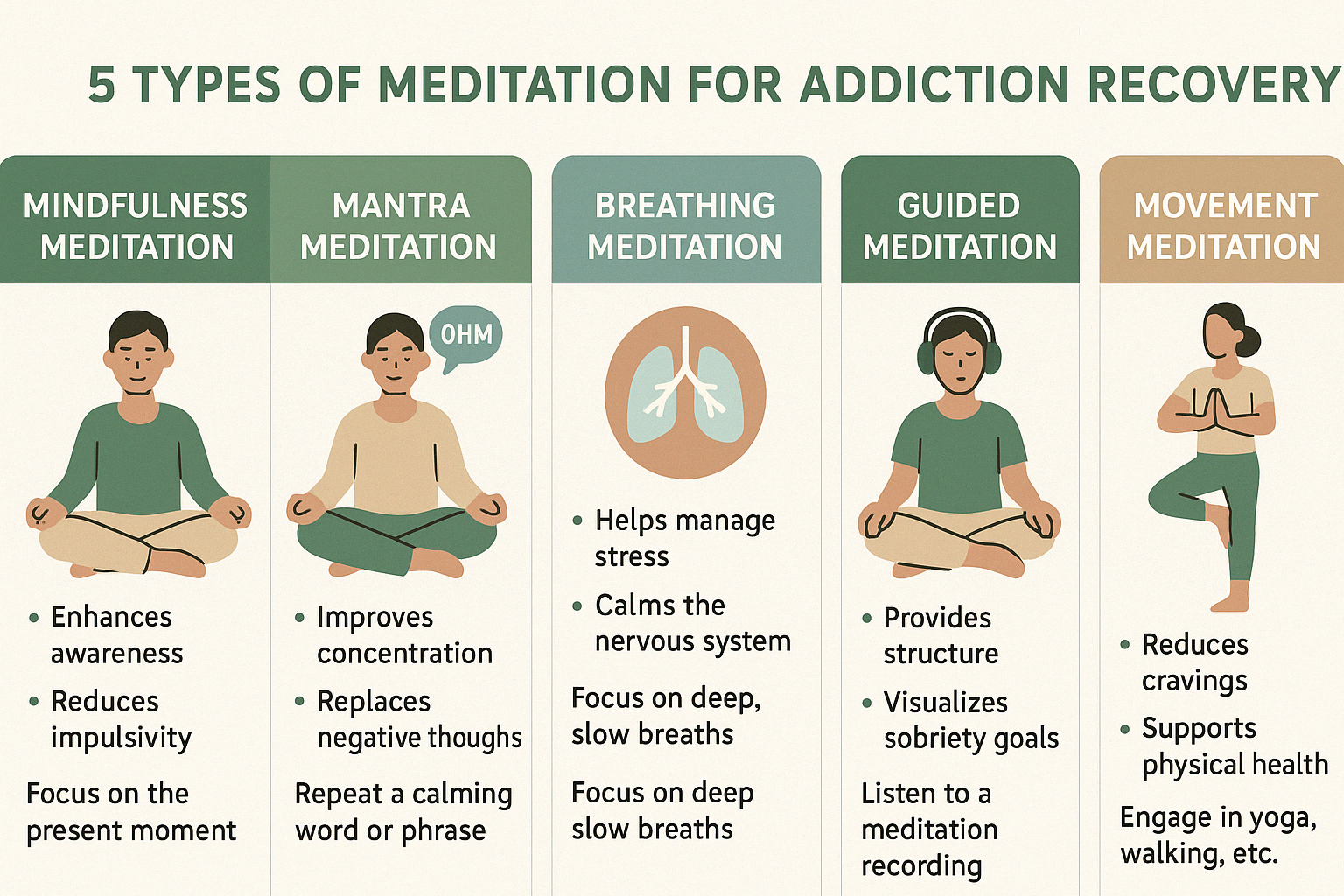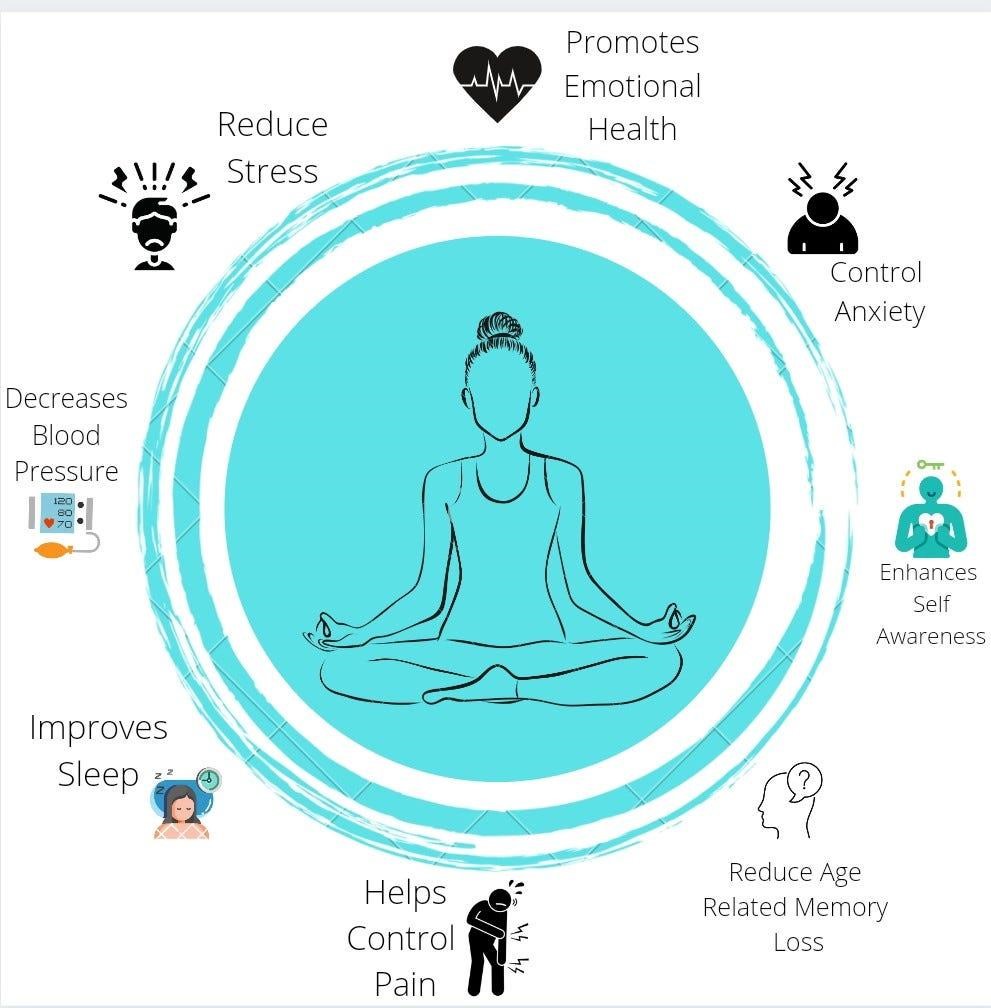The Role of Meditation in Detox Recovery

Detoxification is a complex process involving physical, emotional, and psychological cleansing. In recent years, the significance of mental wellness practices like meditation in detox recovery has gained prominence in holistic healing environments.
At Prayas Sewa Samiti, we understand that addiction recovery is not just about removing substances from the body—it’s also about restoring balance to the mind and spirit.

Understanding Meditation in Detox Recovery
A crucial role in calming the nervous system, regulating emotions, and creating mental clarity. Detox, whether from drugs, alcohol, or behavioural addictions, puts a person under immense stress. This can lead to anxiety, restlessness, and emotional instability. Regular meditation provides a natural and effective way to stabilise these challenges, supporting the detox journey.
Benefits of Meditation in Detox Recovery
1. Reduces Withdrawal Symptoms
Withdrawal can cause intense discomfort—headaches, insomnia, irritability, and more. Meditation activates the parasympathetic nervous system, which helps reduce these physical and psychological symptoms naturally.
2. Improves Emotional Regulation
People in recovery often experience mood swings or depressive thoughts. Meditation in detox recovery helps individuals gain control over their reactions and build emotional resilience.
3. Enhances Mind-Body Connection
Addiction often disconnects a person from their own body and emotions. Mindfulness meditation reconnects the mind to the body, promoting awareness and self-care.
4. Decreases Relapse Risk
Cravings and impulsive thoughts are common during detox. Meditation strengthens attention control, making it easier to resist relapse triggers by staying present.
Types of Meditation for Detoxification and Healing
Not all meditation techniques are the same. Here are some particularly effective forms for meditation in detox recovery:
-
Mindfulness Meditation: Focuses on being aware of thoughts and feelings without judgment. Very effective in addiction recovery programs.
-
Guided Meditation: Often led by a therapist or recovery coach, this type uses visualisation to create calming imagery and positive reinforcement.
-
Breath Awareness (Pranayama): A foundational yoga practice, controlled breathing balances energy and detoxifies both the body and mind.
-
Loving-Kindness Meditation (Metta): Promotes compassion and forgiveness, essential for individuals healing from guilt or trauma associated with addiction.
Scientific Support for Meditation in Detox Recovery
Research shows that meditation alters brain chemistry. It increases levels of dopamine and serotonin—neurotransmitters associated with happiness and motivation, which are often disrupted by substance abuse. It also helps regulate the amygdala, the brain’s stress center, making it easier to stay calm and centered.
Programs like those at Prayas Sewa Samiti integrate meditation not only as a wellness activity but as a therapeutic tool. Individuals who consistently practice meditation show improved recovery outcomes, better focus, and fewer relapses.

Incorporating Meditation into Daily Detox Routines
Starting a meditation practice doesn’t require a major time commitment. Here’s how people in recovery can benefit from integrating meditation into daily routines:
-
Post-Meal Mindful Breathing (2–5 mins): A short session after meals to calm the digestive system and reduce anxiety or restlessness often triggered by full-body detox processes.
-
Craving Response Pause: Whenever cravings arise, take a moment to pause and practice 5 deep breaths to regain control before reacting.
-
Gratitude Journaling Before Bed: A 3-minute reflection on what went well in the day helps reinforce emotional healing and positivity.
-
Nature Meditation (10 mins, once daily): Sit quietly outdoors and listen to natural sounds—birds, wind, or leaves—to ground the senses and promote mindfulness.
-
Body Scan Meditation (Weekly, 15–20 mins): Gently observe sensations throughout your body, releasing tension stored from stress or trauma during recovery.
Having a structured meditation practice helps anchor the recovery journey. Consistency builds mental discipline, which is essential for long-term success.

Support Systems That Include Meditation
The recovery environment plays a huge role in sustaining mindfulness practices. Facilities that understand the importance of meditation in detox recovery—like Prayas Sewa Samiti—provide guided sessions, quiet meditation spaces, and trained professionals who help personalise these techniques for each individual.
Challenges and How to Overcome Them
Some individuals may feel restless or distracted when starting meditation. Here are some practical solutions:
-
Start Small: Begin with 2–3 minutes and gradually increase time.
-
Use Apps or Guided Videos: Tools like Headspace or Calm make it easier to stay focused.
-
Join Group Sessions: Shared energy and commitment improve motivation.
Consistency is more important than duration. Even a few minutes daily can contribute significantly to healing.
Final Thoughts
The process of detoxification is both a physical and emotional rebirth. By integrating meditation in detox recovery, individuals gain a powerful ally in their healing journey—one that promotes self-awareness, reduces relapse risk, and nurtures inner peace. Facilities that prioritise holistic healing, such as the Best Rehab centre in Dehradun, Prayas Sewa Samiti, offer structured meditation programs as part of comprehensive care. Choosing such a path ensures that recovery is not just successful, but deeply transformative.